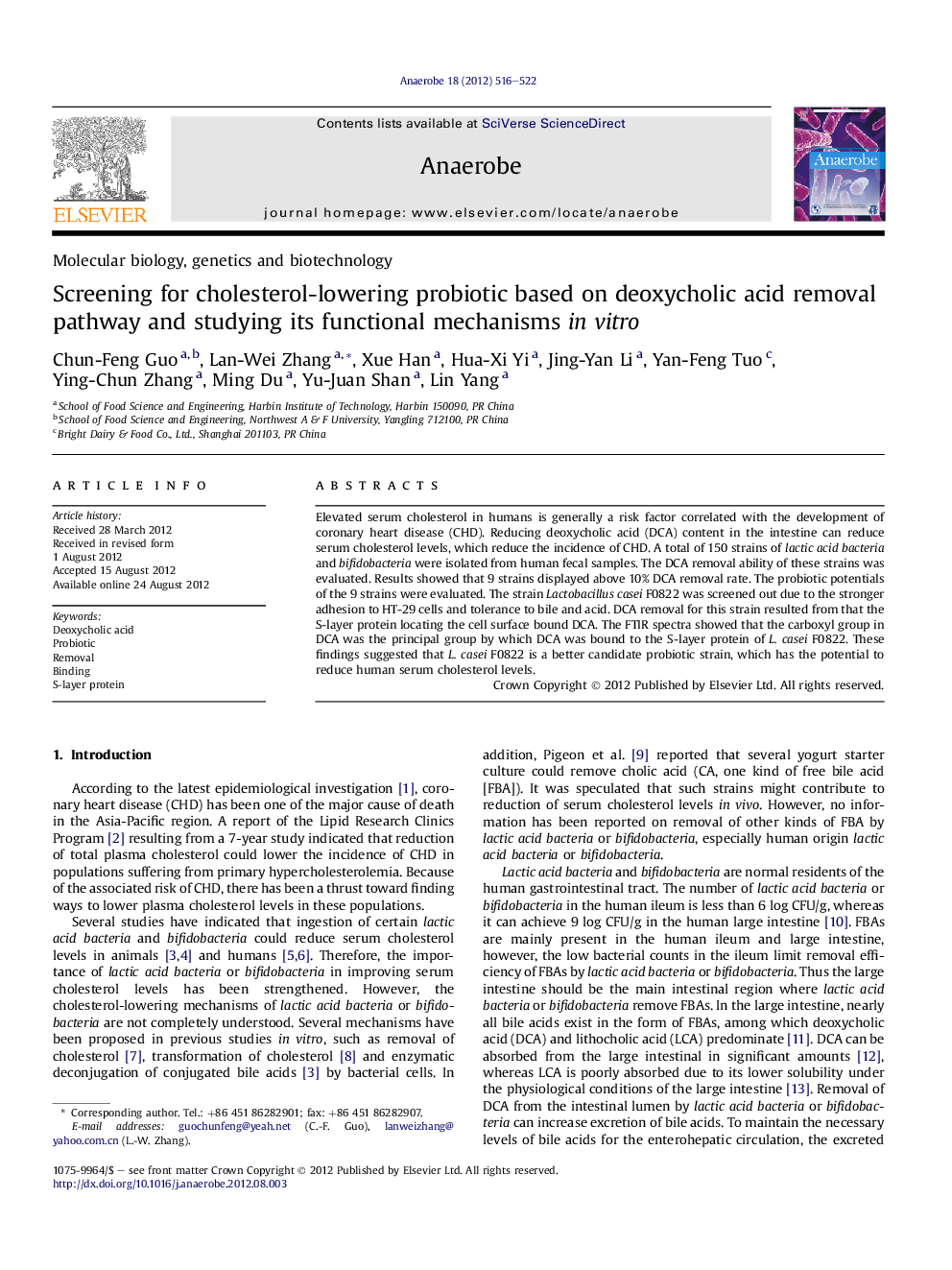| Article ID | Journal | Published Year | Pages | File Type |
|---|---|---|---|---|
| 3395284 | Anaerobe | 2012 | 7 Pages |
sElevated serum cholesterol in humans is generally a risk factor correlated with the development of coronary heart disease (CHD). Reducing deoxycholic acid (DCA) content in the intestine can reduce serum cholesterol levels, which reduce the incidence of CHD. A total of 150 strains of lactic acid bacteria and bifidobacteria were isolated from human fecal samples. The DCA removal ability of these strains was evaluated. Results showed that 9 strains displayed above 10% DCA removal rate. The probiotic potentials of the 9 strains were evaluated. The strain Lactobacillus casei F0822 was screened out due to the stronger adhesion to HT-29 cells and tolerance to bile and acid. DCA removal for this strain resulted from that the S-layer protein locating the cell surface bound DCA. The FTIR spectra showed that the carboxyl group in DCA was the principal group by which DCA was bound to the S-layer protein of L. casei F0822. These findings suggested that L. casei F0822 is a better candidate probiotic strain, which has the potential to reduce human serum cholesterol levels.
► Certain human origin probiotics are able to remove deoxycholic acid (DCA). ► We screen for cholesterol-lowering probiotics based on DCA removal pathway. ► The S-Layer protein of Lactobacillus casei F0822 is the principal component binding DCA. ► The carboxyl group in DCA was the major site which is bound to the S-layer protein. ► The selected strain L. casei F0822 has potential to prevent coronary heart disease.
